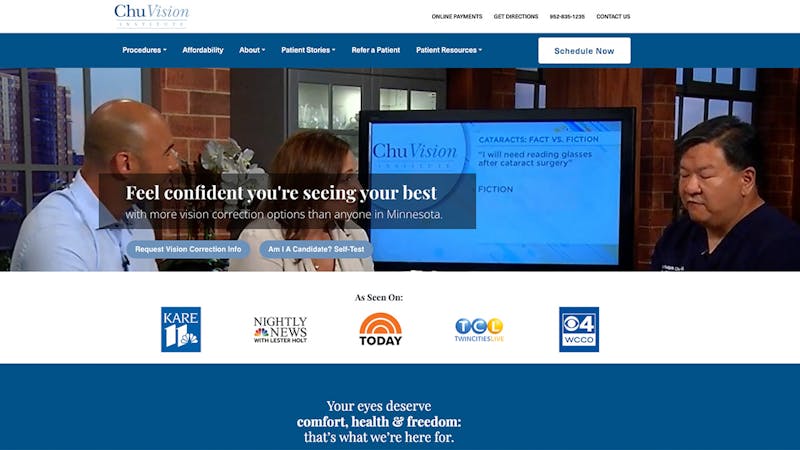26
Feb

Why does my vision change after age 40?
As we age, it's common to notice changes in our vision, especially after turning 40. At Chu Vision, we understand how these changes impact your daily life and overall well-being. From difficulty reading small print to experiencing glare and halos, age-related vision change...
View More26
Feb

Reasons You Should Get Rid of Your Progressive Lenses
Progressive lenses can be tricky to use. They might distort your vision and force you to adjust how you look through different parts of the lens. At Chu Vision Institute, we understand this frustration. That's why we offer a different solution: Custom Lens Replacement. Thi...
View More26
Feb

Amy Jo’s Refractive Lens Exchange Surgery
View More Testimonials Amy Jo has always worn thick glasses since she was just a toddler. They made her less confident since they were so much thicker than all the other kids’ glasses and made her eyes look larger than they were. Amy Jo wasn’t a candidate for LASIK, but then she ...
View More26
Feb

Treatment Options Multiply for Presbyopia Surgery
Back to Blog One of the biggest changes in ophthalmology in the last few years is the use of lens implants to treat presbyopia. Presbyopia is a condition that is a natural effect of aging, in which the eye loses its ability to focus up close. It starts to affect people in their m...
View More26
Feb

Your Eyes After 40: Why You Can’t Read the Menu
Back to Blog It doesn’t happen overnight, but it might seem like it. One day you are out to dinner with your family, the waiter hands you the menu in the dimly lit room, and you can’t read a word! Does that say salsa or salad? No need to be alarmed by this shift. Between the ages...
View More26
Feb

Custom Lens Replacement: The CLEAR Solution for Getting Rid of Reading Glasses
Back to Blog As we age, small print gets harder and harder to read. After a while you may feel you have no choice other than to purchase a few sets of cheater-readers. This adjustment can be especially frustrating for people who have never worn glasses before. When patients s...
View More